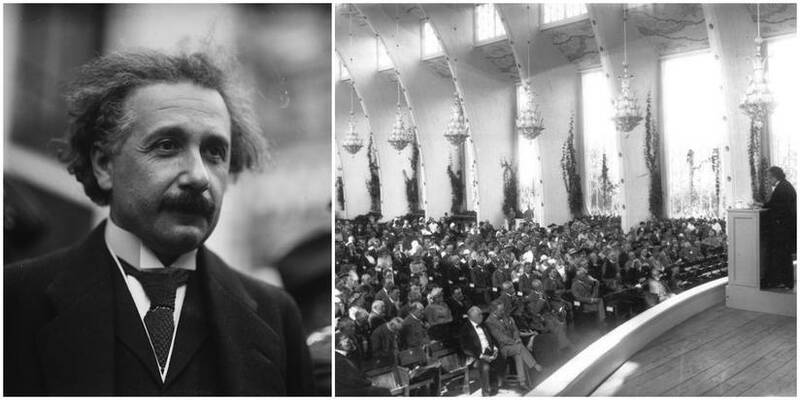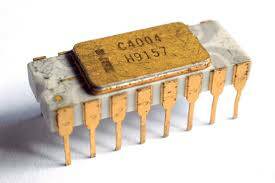2021: Preview of Coming Attractions
Mon, January 04, 2021
Topic:
As a new year dawns, we can look forward to some notable dates and events in 2021:
- CES Goes Virtual – Normally a massive event drawing some 17,000 attendees to Las Vegas, North America's largest technology showcase, the Consumer Electronics Show (CES), will be held as an all virtual event January 11-14. Learn more...
- Photonics Spectra Conference – The first notable event on Radiant's calendar this year is the venerable Photonics Spectra Conference, held virtually on January 20-22. The conference covers the most important advances in lasers, optics, imaging, and spectroscopy. Radiant Project Engineer, Jessy Hosken, will be speaking as part of the Optics track on the fundamentals of color vision science in the presentation "Colorimetry: A Primer on the Science of Color Measurement." Learn more...
- 100th Anniversary of Einstein's Nobel Prize – Albert Einstein was on a boat headed to China when he received a telegraph that he had been awarded the 2021 Nobel Prize in Physics "for his services to Theoretical Physics, and especially for his discovery of the law of the photoelectric effect."1 Word spread quickly and when the boat arrived in Shanghai he was met at the dock by crowds of cheering fans. To mark the anniversary, a traveling exhibit of items from the Albert Einstein Archives will kick off in New York and then tour around the globe. The exhibition will include handwritten pages from his original general theory of relativity, his Nobel medal, and other personal papers and effects. The exhibit will also engage students and the public with a look at how Einstein's theories have influenced science and technology innovation from driverless cars and the search for alien life to the Pokemon Go game. Learn more...

Albert Einstein delivering his Nobel lecture to the Nordic Assembly of Naturalists in Sweden in 1923. (Image: Library of Congress/Wikimedia Commons)
- Keep an Eye on the Stars – Astronomy enthusiasts in 2021 will have the opportunity to see several planetary and eclipse events, including a conjuction of Venus and Jupiter on February 11, a quadruple formation on March 9-10 when Mercury, Jupiter, Saturn and the Moon will all be visible in the early morning sky, and a "blood moon" total lunar eclipse on May 26. Summer sky watchers can also catch Venus/Mars and Mars/Mercury conjunctions, along with a particularly active Perseid meteor shower peaking August 12-13. Those in Antartica will witness a dramatic total solar eclipse on December 4, which will be visible as a partial solar eclipse in parts of South America, southern Africa, and Australia. Learn more...
- Faraday Discovers Electromagnetic Rotation – September 3, 2021 marks the 300th anniversary of Faraday's important discovery. Using an experimental set up with a mercury bath, he was able to convert electrical energy into mechanical energy, the principle behind the electric motor. Due to his ongoing work in this area, his subsequent discovery of electromagnetic induction, creation of the electric transformer, generator, Faraday cage, and other inventions, he is often called the 'Father of Electromagnetism'. Learn more...

The only surviving experimental apparatus of Michael Faraday, this one was built in 1822 for continuing his study of electromagnetic rotation. (Image: Paul Wilkinson, Source)
- The Emergence of Microprocessors – This year marks the 50th anniversary of microprocessors (computer processing units, or CPUs) on the market. On November 15, 1971 Intel released the world's first commercially available microprocessor, the Intel 4004, effectively launching the digital revolution. Compared to today's computer chips, it was a tortoise with a clock rate of just 740 kHz, 4-bit, 2300 transistors with a 10 micrometer process, and connected to control boards via 16 pins. Intel's latest 10th-generation gaming CPU offers a clock speed of 5.3 GHz. Learn more...

The Intel 4004, the world's first single-chip microprocessor (Image: Wikipedia)
Undoubtedly 2021 will hold some new technological advances and some (hopefully positive) surprises. Stay tuned!
CITATION
- Albert Einstein Facts, The Nobel Prize, (retrieved January 4, 2020)
Join Mailing List
Stay up to date on our latest products, blog content, and events.
Join our Mailing List
